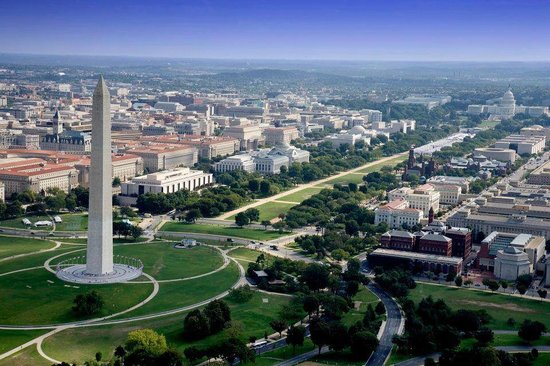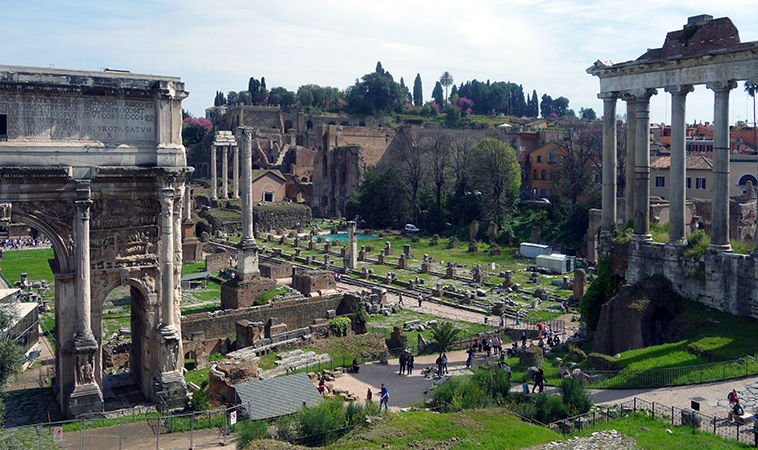“What I worry about is, when problems are not addressed and the people do not know who is responsible … some one person will come forward and say, ‘Give me total power and I will solve this problem. That is how the Roman Republic fell. That is the way democracy dies” – David Souter

About once a year, on business in Washington D.C., I would take an afternoon or evening and walk the memorials along the mall. I would be sure to stop and read the Second Inaugural Address, inscribed on the north inside wall of the Lincoln Memorial, always awed by the power of the language, biblical, from the mind of a man of the wilderness, completely self-educated, capturing the nation’s great and tragic condition in the closing days of the American Civil War. Three weeks after delivering the speech, Lincoln was murdered by a bitter supporter of his political opponents.
America has not had a major Presidential candidate, supported by a large voting bloc, and with substantial representation in Congress, defy an election result since 1860, when sitting Vice-President John Breckinridge, a pro-slavery Kentuckian, did so, going on to advocate dissolution of the nation by secession of the Confederate states. Today, in support of Donald Trump, a large cabal of elected Republican Congressmen and Senators undertook an organized effort to obstruct the formal counting of the Electoral College votes, an act overseen by our current sitting Vice President, Mike Pence, an effort that undermined the peaceful transition of presidential power, the hallmark of our democracy, continuing relentlessly to chip away at its very foundation. This was followed by an invasion of the Capitol by Trump supporters, after his incitement to march on the building, and disruption of the formal electoral vote count. While the American Republic will survive the Constitutional abuses of the Trump administration, it will remain damaged by them, and the nation would benefit from a serious review, not directed at Trump for his abuses, a subject for separate consideration, but at the fractures he exposed in our governing system relative to the intent of their design, and we would be wise to make an effort to repair them.
Greek historian Polybius, writing in the first century BC, attributed Rome’s long term military success to the underlying stability of its representative political system, a balanced structure that diffused power to prevent any individual, or any segment of society, from gaining control of the government, providing for a more sustainable government over time, more capable of the long term military campaigns required for Rome’s conquests.

Great biographers choose their subjects as a means to tell a greater story about the age in which they lived. Adrian Goldsworthy’s biography of Caesar does this with the Roman Republic, but further, he describes the failure of its political system to resolve challenges in its economic and social structures that eventually led to its demise. These themes rattle to the surface as one reads, unavoidable, providing a striking analogy to our modern position. America’s rebellion against a monarchy; establishment of a republic based on core principles of representative government and diffusion of political power; evolution of law, tradition and governing institutions over time; importation of slave labor fueling the country’s early agricultural and manufacturing economies; domination and forced migration of the continent’s native peoples; conquest and resettlement of its territories following expansion of continental trade; civil war over slave labor as a critical ingredient of the nation’s aristocratic wealth; long term, severe labor strife following mass industrialization; systemic economic collapse and depression; military conquest of vast areas of Europe and Asia; reconstruction of global trade and financial systems formalizing America’s economic domination; generation of great wealth through technology and trade; increasing concentration of that wealth in its aristocracy; systemic financial and ideological corruption of the political system relative to its design; undermining of the nation’s common labor force representing the majority of its population; then severe social and economic divisions leading to utter political dysfunction.
If we were to follow the insight of Polybius about the rise of the Roman Republic, America’s long term military and economic success are a function of its republican government, providing broad representation, diffused power, political stability, and longevity to its governing institutions. If we were to go on to follow Goldsworthy’s thesis about the decline of the Roman Republic, America’s military and economic success would create a self-reinforcing cycle of military conquest; domination of global trade; increasing concentration of wealth in the aristocracy; corruption of the political system’s design to undermine the interests of the majority of its population in the common labor force; then severe political division and dysfunction. And this is just the situation America seems to be in; having achieved the pinnacle of success, a military and economic colossus astride the world, our institutions now seem to be incapable of identifying, let alone solving problems facing us; such dysfunction that the broad public has largely lost confidence in the governing system that was designed to represent them.
Our own republic has endured a leader who prevailed in his impeachment trial for betrayal of its design; has overcome the encouragement of mob violence intended to benefit his re-election; and has survived attempts to prevent the clear winner of a presidential election from taking office by extensive litigation of falsehoods and conspiracy theories. After these efforts failed, we witnessed the blatant shakedown of senior state election officials intended to reverse confirmed, and re-confirmed, election results; an organized obstruction of the final national election result from within senior levels of our government through blatant abuse of a ministerial formality; and a mob assault on the U.S. Capitol incited by a sitting President disrupting the formal counting of the electoral college votes. After the inauguration, we will likely face the prospect of a media-fueled, fantasy-government in exile, supported by substantial representation in the government itself, financed by wealthy members of the aristocracy – a modern, media version of Caesar and Pompey – both with strong support in the population and in the government itself – both believing they are legitimate and the other illegitimate. Trump, a legal escape artist, will leave office on Inauguration Day, and will eventually fade away, but in the meantime, the fractures he exposed in our political system will remain, and his abuses will become precedent for future Presidential conduct if they are not addressed.
While this chapter in our history demonstrates that our political system is very durable, it also shows that it is not impervious to abuse; it failed once before when it could not resolve social and economic challenges within its design. It may be that democratic government is not as stable as we have thought, often seeming a Sisyphian effort. After all, Polybius proved to be wrong about the Roman Republic in the long run; its design did not preserve its longevity. You can decide if Goldsworthy’s theses about the gradual erosion of its political design from within, and the underlying causes of the failure of the Roman Republic, apply to America’s experience.
As I became fascinated with Goldsworthy’s history, and its political and economic themes, this article became very long, so I am publishing it as a series in ten episodes, to follow shortly.
Excellent intro and I’m ready to read more!
LikeLike